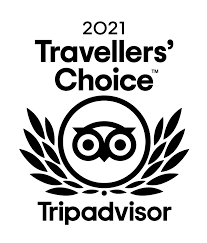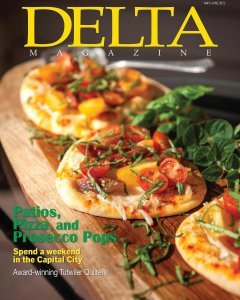
On the banks of the Sunflower River in Clarksdale, MS some school kids kick it with some local Delta Bohemians. Photo by The Delta Bohemian
CLARKSDALE, Mississippi
Educational Aims and Purpose of Schooling
The most important aim of education for America’s children is to provide a rigorous, liberal education for all children, regardless of socio-economic status or abilities. A liberal education is an education that develops the mind and includes exposure to an array of Core and Humanities-centered classes.
Children must be prepared, encouraged, and aided in the pursuit of higher education, or a desired vocational program relevant to their strengths, goals, and gifts. Every step, level, grade, subject, school, classroom, teacher, school worker, parent, and student must have high expectations for success. High expectations and the accompanying rigor are vital in changing the life of a child, his or her family, subsequent generations, and ultimately, the community at large. Education at every level is “key” in preparing students academically, ethically, relationally, and pragmatically for the pursuit of their passions in the marketplace and in life.
While children must conform to the procedures and particulars that make a school unique and successful, it is imperative for pro-active teachers to ensure children be taught with and exposed to sundry methods of instruction, designed to meet their needs and their unique learning styles. This can be accomplished through differentiated instruction.
Another important aim of education should be to ensure children learn to think critically and democratically, as can be evidenced by self-advocacy, original thinking and expression, and the ability to take a learned concept and apply it to a different topic or in a different venue. Thomas Jefferson wrote, “If a nation expects to be ignorant and free…it expects what never was and never will be.” A holistic education should prepare students to become productive members and contributors to society.
Student Goals and Achievement in My English and Social Studies’ Classes
My greatest aim for students in my Language Arts classes regarding academics and mechanics is that they be able to write a complete sentence well, and that they be able to link several, related, complete sentences together to form a paragraph, which expresses a unified idea. Then, I want them to be able to connect several, well-written paragraphs together to form a complete essay that makes sense to the reader.
I believe an original, well-written essay is an excellent assessment encompassing most of the grammar skills needed to know by high school students. Also, I always strive to expose students to as many types of literature as possible, including great works and contemporary, pithy, relevant works, which can have significant meaning for their lives.
Paulo Freire, a champion of critical literacy, wrote that students must be able to read the world in order to be able to read the word. Educators must expose students to relevant works, in order for students to comprehend and understand not only what they are reading, but also the world around them, which will in turn facilitate their understanding of what they read.
I concur with Francis Bacon, who wrote: “Reading maketh a full man; conference a ready man; and writing an exact man.” My learned, departed grandmother quoted this to me often, and I strive for my pedagogy, professional demeanor, and lifelong learning to reflect the richness in this quote.
In Social Studies, I want my students to comprehend and be able to understand how the different subject areas (History, Geography, Economics, Sociology, etc.) are interwoven and dependent on each other from a Humanities’ perspective. If students are equipped with an understanding of cause and effect and multiple-causation regarding the Social Studies, then their buy-in is often quicker and more complete. The Social Studies are interdisciplinary by definition; therefore, students will attach more meaning and have a deeper depth of understanding if the subject areas are taught with a multi-disciplinary, multi-cultural, and multi-sensory approach.
Emotionally, I want students with whom I work to always know how much I value them and their uniqueness. My students will all know how much I care about their education, their future, their developing passions, and their daily predicaments. I want my students to be exposed to an array of literature, music, art, worldviews and philosophies, which will increase their general knowledge base and potential for discovering their passion. Furthermore, students should know they could express their ideas freely in the classroom using appropriate communication skills, and not have to worry about being admonished because their opinions differ from those of others. However, it is of vital importance that students be taught and made aware of societal norms regarding behavior and communication skills.
Historically, I have had students to journal several times a week. I will put a topic or question on the board and ask them to write about it. All of my students have enjoyed and done well with the journaling, and they have learned a great deal about themselves through the reflective process. Journal writing provides evidence that academic and emotional objectives are being met. Journaling also encourages reflection, which aids in the self-discovery process.
Social Significance of Student Learning
From a temporal perspective, most students spend more time in school with teachers than they do with any other significant person in their lives. A student’s socialization is heavily influenced by his or her time spent in a school setting. The degree to which formal education prepares a student for what is to come later in life is the degree to which the student will be successful.
I concur with Mortimer Adler’s premise–the PAIDEIA approach–that education should serve three main purposes: teaching students how to live in a democracy as responsible citizens, teaching students how to make the best use of leisure time, and teaching students how to earn a living ethically. I feel a moral and an ethical obligation to help facilitate a positive experience every day for each and every student with whom I come in contact with. I try to model the same behavior that I want to see in the student. I thank my students every time they hand in an assignment, and I look for reasons to daily praise and edify them. In doing so, I am recognizing their inherent value, and hopefully, encouraging them to pass along the same “polite” behavior to others.
Learner Assumptions
All students are able to learn. Regardless of their age, students possess presuppositions that influence their education. These presuppositions are shaped by environmental and cultural experiences formulated in the home, school, respective communities, and society. Often students have been “labeled” early in school or by society as being a certain type of student or child–stupid, dumb, lazy, bad. These labels and the student “buy-in” to these societal labels dramatically influence the student’s belief in her ability to learn, as well as the teacher often assuming that the labels are true.
Students want to learn, and it is incumbent upon me to ascribe value to them, to find out how they best learn, to encourage and recognize their strengths, to shore up their needs and opportunities, and to give them hope for the future. If I do this, then they will learn.
In A Raisin in the Sun, Mama says to Beneatha, “Child, when do you think is the time to love somebody the most; when they done good and made things easy for everybody? Well then, you ain’t through learning–because that ain’t the time at all. It’s when he’s at his lowest and can’t believe in hisself ’cause the world done whipped him so.”
Value of Student’s Learning Experiences
I cannot improve on Adler’s main purposes of education and the accompanying outcomes: Students being able to leave school understanding and appropriating the skills and knowledge required to make one a responsible citizen, being prepared to make a living in an ethical and socially conscious manner, and possessing the knowledge of how to best use their leisure time.
All students should acquire a general knowledge of all core subjects, with exposure to an array of elective subjects (I differ from Adler on this point–I believe electives are important in the formal classroom), which increases their knowledge of the world and how different cultures, businesses, and epochs dealt with and continue to deal with life.
Image of the Teacher
Teachers wear a multitude of “hats.” They often act as instructor, facilitator, student advocate, disciplinarian, mental health counselor, nurse, guidance counselor, friend, “big brother,” mentor, and lightening rod. The most imperative image of a teacher for a student to have is that of a fair, passionate, lifelong learner with a desire to inflame passion in others, while actively maintaining rigor and relevance in the classroom and at all school-related activities. An effective teacher must also be collaborative, and it is important for students to see their teacher working well with others toward a common and noble goal.
Preferred Style of Pedagogy and Roles
Though I consider myself intuitive and able to adapt to any educational environment, I believe the most effective pedagogical technique comes from the Paideia approach and style of instruction. Paideia provides a three-column, instructional delivery approach to the acquisition and dissemination of knowledge. The first column has the instructor providing didactic, lecture-oriented instruction. In the second stage of instruction, the teacher works with students via supervised practice and individual coaching relative to the student’s own work. The third stage is designed to enlarge the student’s understanding of values and ideas. After the first two stages have been covered, then Socratic questioning is used in the third stage to further the student’s understanding of the subject matter being presented–meaningful reinforcement.
Language and Discourse in the Classroom
When focusing on literature in the classroom, I do like to see the use of language being precise and using similes, metaphors, and other descriptive devices. During most assignments I am formal in my requirements for language and expression. However, in most of my in-school communications with my students individually and corporately, I am very informal, laid-back, and approachable. An effective classroom teacher can effectively model how to communicate in many different situations. I strive to ascribe value to each student’s rich fund of knowledge based on his or her individual and family cultural identities and expressions. I acknowledge the vernacular that is often used in the home, and also try to instruct them when it is important to use formal discourse and language in school and in the business world.
Teacher-Learner Relationships
Student and teacher morale are directly affected by the relationship between the student and the teacher. The teacher must take the lead in curriculum development and delivery, but the student must feel vested in the curriculum and in the whole classroom’s educational process and progress. Though the teacher must always retain control over what transpires in his or her classroom, the teacher must appear “approachable” to his or her students, so that they will feel safe and have a heightened desire to learn.
The beginning of effective pedagogy assumes E. M. Forster’s admonition–“Only connect.” Higher achievers most often produce for themselves. Low to moderate achievers often produce solely for the teacher, because they want to please them, due to a connection having been made. I want to help facilitate all students becoming self-actualized via the administration of relationship, rigor, and relevance. I want to “Inspire the Uninspired,” and to continue to inspire the already inspired.
School Climate and Environment
The most important environmental concern in any school requires that students, teachers, administrators, and staff feel physically safe. Students must also feel safe to participate in discussions and classroom activities without fear of recrimination and ridicule. Schools should mirror society in that roles should be apparent, norms adequately conveyed, and freedom of expression should be encouraged and tolerated, with faculty and staff modeling the appropriate way for students to express themselves. Schools must be communities rife with life-long learners who are in the pursuit of excellence. Charles Diehl stated, “The good is ever the enemy of the best, therefore, we did not merely seek the good but the best. There was ever before us the ideal of excellence.”
In conclusion, my educational platform and educational philosophy have been shaped by my life experiences, literacy beginnings, educational opportunities seized and lost, and view of the “condition of and hope for mankind.” My platform is not static, but is evolutionary and dynamic, because I am a lifelong learner. My overall educational aim is to help kids self-discover their passion, while learning some “neat,” informative, and necessary facts along the way. I want their educational experiences to be pleasant, edifying, life changing, and conducive to them becoming lifelong learners, with a desire to pass along the “good” that they have acquired and accumulated. This can best be accomplished through servant leadership.
We highly encourage comments!
Don’t Forget to BECOME A DELTA BOHEMIAN by SUBSCRIBING TODAY!










As one who finds himself still trudging through silt of bureaucratic nonsense we call the public education system, I enjoy this dialogue as much as anyone.
I basically come from the same school of thought as Huck himself; however some would say that I have become jaded over the years. I would say that I have become a realist who refuses to discontinue the search for the grail but has realized that Don Quixote was an idiot. There may be other ways to attack the windmill and actually win.
I too subscribe to the school of thought where the single most important part of a child’s rearing must be the acquisition of a liberal (well rounded) education. My thoughts may seem quite preposterous but bear the pondering of those who would consider themselves “thinkers.”
I for one and sick of “experts on education”, including the President, lambasting our public education system for testing below other countries. I wish I could pound into their pompous heads that in our country, we not only offer but require that ALL children attend public education until well into adolescents. If interested, a documentary, “Making Mardi Gras,” gives insight into how countries such as China decide who will actually receive a secondary education.
I am not benign to the fact that our public education is flawed at best. I would assert that it is probably as efficient as any other government run institution. While working for the Arizona Department of Education, I participated in a study where we gave 11th grade students across the state a simple U.S. History exam. A sample question was, “Who was the first president of the United States?” 68% of 11th graders failed this test. We later revealed that the test was the same one given to people applying to become citizen of our country. This research still sickens me today.
I would also present that few who would consider themselves thinkers have seen the atrocities committed against children that Huckleberry Ed and I have personally witnessed. We could tell stories that would make one consume large quantities of substances that help one forget. I would present that often times lack of proper guidance is the most sever form of neglect one can impose on a child, but that is a topic for another day.
I am not only a believer in but a member of the Paideia Society, but as you mentioned, Mortimer pontificated far too deeply in idealism than my reality allows me create illusion of. I do believe the future of our country depends on an intelligent population, and I feel that in this endeavor we are failing miserably.
As normal, I have bloviated far beyond what I should. However, I am not one to illuminate a problem without proposing a solution. Unfortunately, at this time I have not completed my thesis of a solution. I do know that I am leaning toward the need for more psychological, sociological, and physiological support for our youth. It is a basic fact that the majority of teachers, given pressures beyond their control, do not have the time to employ counseling techniques such as the times when Petie, Billy, and Chuck would just “keep it real” with students. I am beginning to wonder if a liberal education is not impossible until these basic needs are met. Or of compulsory education is necessary. If we do not teach our children, then there are plenty of people on in the hood, who will be glad to educate them.
My Boy, Chuck! Wow! Thanks for the thesis; I am tied up until late this evening, but look forward to digesting this! I know your well-thought out comments and most excellent articulation will provide some thought provoking reading! Love ya brother! Huckleberry Ed
Excellent thoughts Chuck! I too have become jaded. I think I posted my philosophy to remind me that I once held ideals concerning education. The Mississippi Delta, quite frankly, beat the desire (maybe just short term) out of me to continue teaching when one is rarely heard and chaos in the classroom precludes students from learning to think critically or at all! I concur that a democratic education and the benefits inherent within must be predicated on classroom and social order, and students must be taught and allowed to learn in an environment free from constant chaos! Huckleberry Ed
Perhaps banning teachers unions and lazy parents might help!